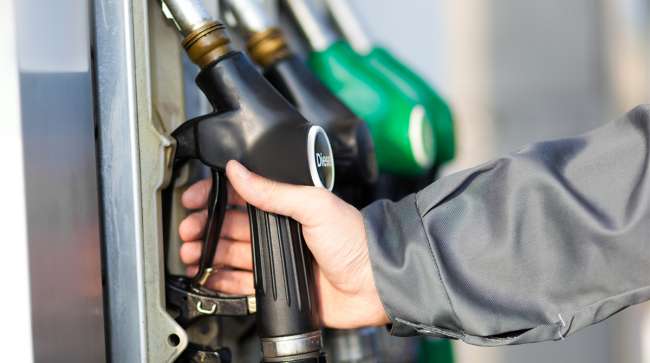Staff Reporter
States Challenge California on Emissions Legal Activism

[Stay on top of transportation news: Get TTNews in your inbox.]
Alabama is leading a 19-state coalition suing five states in the U.S. Supreme Court for pursuing what the group calls “ruinous liability and coercive remedies” in legal actions against energy companies that the suit claims threaten the national economy and extend beyond the states’ borders.
“If the Supreme Court lets them continue, California and its allies will imperil access to affordable energy for every American,” Alabama Attorney General Steve Marshall declared. “That would threaten our national security and harm millions of Americans already struggling to pay for gas and groceries. In addition to California, states named in the suit include Connecticut, New Jersey, Minnesota and Rhode Island.
Among multiple cases cited by the coalition is one California filed in September against a list of oil companies that includes Exxon Mobil Corp., Shell, Chevron Corp., ConocoPhillips Co., BP and the American Petroleum Institute alleging a raft of claims including destroying natural resources, misleading environmental marketing, fraudulent business practices and failing to issue warnings about their products. California asked the court to force the petroleum firms to lessen the “ongoing public nuisance their conduct has created,” pointing specifically to pollution and destruction of natural resources.
The coalition also cited an October 2022 case brought by New Jersey against 12 energy companies and the American Petroleum Institute for charges that included consumer fraud. And in 2020 both Connecticut and Minnesota filed lawsuits against energy companies; the Connecticut suit accused Exxon Mobil of making false or misleading statements about its business practices and the environmental impacts related to vehicle emissions produced from use of its products. It also alleged that Exxon undermined and delayed the creation of alternative technologies that could have “avoided the most devastating effects of climate change.”
The Minnesota lawsuit lobbed allegations against Exxon, API and others of fraud related to the dangers of oil/gas and harms from climate change.
Broadly, the suit accuses the defendant states of violating the constitutional protection given to states in a horizontal, equal separation of powers; ignoring exclusive federal authority over interstate emissions; and violating the commerce clause granting Congress the power to regulate interstate business.
Marshall accused the five states of promoting a radical legal agenda that will drag unwilling states and their residents into forced regulatory compliance since the potential court decisions could jeopardize the “interstate stream” of energy products used by people in coalition states. The suit claims that the defendant states aim to create, regulate, tax and dictate the types and usage of nontraditional energy policy well beyond their borders.
“It is difficult to overstate the magnitude of the harms posed by defendant states, who assert that their state laws impose liability — and the potential for injunctive relief — based on emissions anywhere in the world,” the coalition noted. “Defendant states hope to enforce their laws directly on wholly extraterritorial conduct.”
The 88-page lawsuit was brought by 19 attorneys general representing Alabama, Alaska, Florida, Georgia, Idaho, Iowa, Kansas, Mississippi, Missouri, Montana, Nebraska, New Hampshire, North Dakota, Oklahoma, South Carolina, South Dakota, Utah, West Virginia and Wyoming.
The states outlined potential financial harms if the sale of energy products within their borders is impaired by defendant states’ actions. Alabama, for instance, said workers there in pipeline transportation earned more than $86 million in 2022, while those in oil and gas extraction jobs were paid over $54 million. The state that year received $700 million in revenue from its gasoline tax, $32 million from oil and gas privileges and $12 million from oil and gas production.
Alaskans earned over $875 million in that year working in oil and gas extraction, while Mississippi workers in those jobs were paid $63 million in wages. Mississippians in pipeline transportation received over $105 million. North Dakota’s oil and gas industry in 2021 brought in $42.6 billion in gross business volume, created 50,000 jobs with a $3.9 billion total payroll and contributed to $3.8 billion in state and local tax revenues, the coalition said.
Corey Cox of the Tandet Group of companies discusses how early AI adopters are beginning to harvest the latest wave. Tune in above or by going to RoadSigns.ttnews.com.
The Supreme Court is being asked to protect the coalition states’ ability to use and regulate traditional energy sources and declare unconstitutional the defendant states’ lawsuits’ ability to prosecute and impose liability for emissions by or in plaintiffs’ states.
“Dissatisfied with their options under federal law ... numerous state and local governments have launched a frenzy of lawsuits invoking their own laws to demand billions of dollars in damages allegedly related to past, present and future climate change owing, they say, to interstate gas emissions,” declared the coalition.
“Each state is sovereign, and these other states have no right to tell South Carolina what to do, especially when their plans would cost South Carolinians more and reduce our ability to generate the energy we need,” Attorney General Alan Wilson said.
An example cited for Nebraska advanced Wilson’s point. “Cross-country travelers driving vehicles that use liquid fuels pass through Nebraska on Interstate 80 and other highways. They pay Nebraska’s fuel tax during such trips. Nebraska’s fuel tax revenues total over $300 million annually,” the coalition explained in a section detailing how the 19 states’ economies are interlocked with traditional energy sources.
Alabama’s Marshall added, “These states are welcome to enforce their preferred policies within their jurisdiction, but they do not have authority to dictate our national energy policy.”
Missouri Attorney General Andrew Bailey said, “California and its radical counterparts are working to upend our economy with their unconstitutional climate agenda. My office will not allow a state with zero respect for the rule of law to dictate how Missourians live their lives.”
Want more news? Listen to today's daily briefing above or go here for more info
Oklahoma Attorney General Gentner Drummond said, “The energy industry is key to a thriving Oklahoma and nation. No single state — or even five — should be allowed to dictate what is right for another state.”
“In essence, defendant states want a global carbon tax on the traditional energy industry,” the coalition said. “If defendant states are right about the substance and reach of state law, their actions imperil access to affordable energy everywhere and inculpate every state and indeed every person on the planet. Consequently, defendant states threaten not only our system of federalism and equal sovereignty among states, but our basic way of life.”
Idaho Attorney General Raul Labrador added, “It’s not a new tactic to sue an industry to force a social agenda, but the stakes have never been higher. We cannot let national energy policy be driven by a handful of activist states pushing their climate change agenda. This will just increase prices for everyone at the pump while crippling our national economy.”





